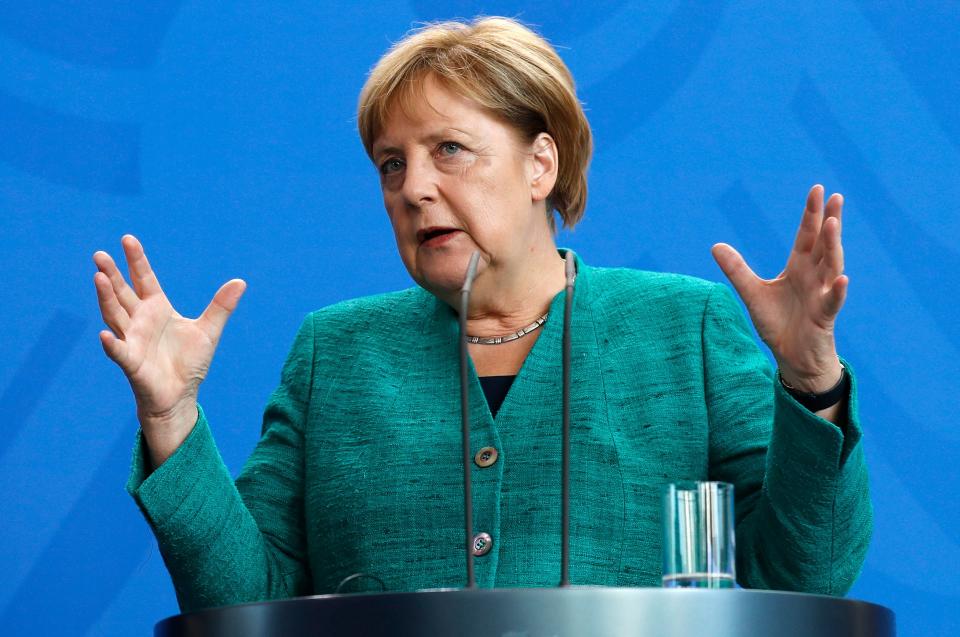Brexit transition period negotiated by Theresa May could be too short to sign trade deal in, Angela Merkel warns
Angela Merkel has broken her silence on Brexit to warn that the transition period negotiated by Theresa May could be too short to negotiate a trade deal.
The German chancellor told a group of industrialists in a speech that the nature of the future relationship between the UK and EU had to be nailed down before the UK left to avoid running out of time for trade talks.
If the declaration of the future relationship was left vague, Ms Merkel said, the coming 21-month transition period would “very quickly become too short” to conclude a “very intensive” set of negotiations.
The transition period, during which the UK would continue to follow EU rules and little would change economically, is conditional on a withdrawal agreement being signed. If no deal is reached, the UK crashes out of the bloc completely on 29 March 2019.
The Chancellor’s intervention effectively amounts to her siding with French president Emmanuel Macron’s view that the future-relationship plan between the EU and UK must not be left vague just to secure a deal.
Some other EU leaders had suggested allowing the future framework declaration to be a vague list of aspirations in order to ease the passage to an agreement this October – with Ms May’s Chequers plan all but dead and both sides appearing unlikely to budge on their red lines.
But Mr Macron’s approach of holding the UK to a detailed declaration won out among leaders at last week’s Salzburg summit, with European Council president Donald Tusk pronouncing after the meeting’s Brexit discussion that any declaration would need to be as detailed as possible.
Ms Merkel has now backed him up in public, telling her audience that the goal was now “to formulate future relations with the UK as concretely as possible”.
She again rejected the Chequers proposals, stating that the UK “can’t belong to one part of EU common market but not to the other three”.
“Playing for time, I believe, also doesn’t help the business community, because the business community needs clarity,” Ms Merkel said.
“We have six to eight weeks of very hard work ahead of us in which we have to take the political decisions. A lot depends on what Britain really wants.”
Since her rejection at the Salzburg summit Theresa May has doubled down on her red lines, telling reporters yesterday that she believed a no-deal Brexit would be better than the Canada-style deal on the table from the EU.
The two parties have around a month left to come to a deal: Though an agreement on the Northern Ireland border issue appears to be making process, on the question of trade both sides are further apart than ever.

 Yahoo News
Yahoo News 

